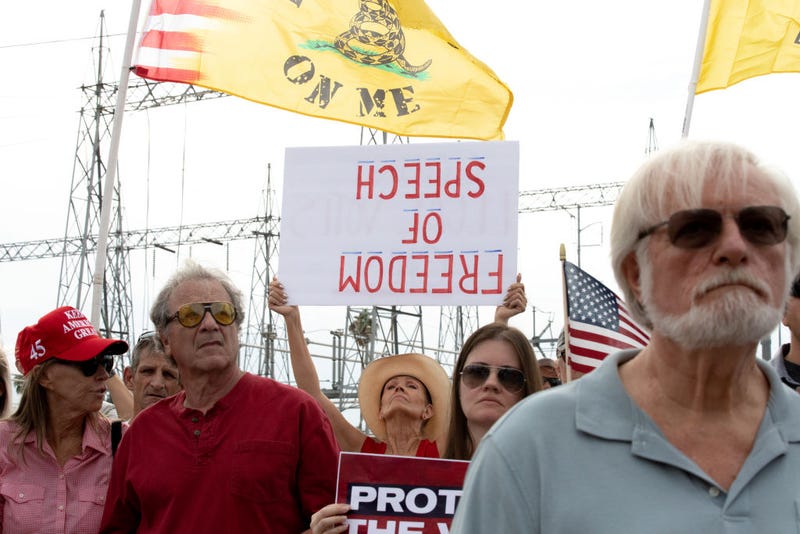
Were 173,000 “lost” votes from 2020 election just discovered? Fact checkers say they probably never really existed.
Claims about the votes made in a “Grassroots Canvass Report” released Wednesday regarding the Maricopa County, Ariz., 2020 presidential election results did not pass an Associated Press fact check.
According to the report – authored by real estate agent Liz Harris, who lost the Republican Arizona state representative race in the Nov. 3 election – there were 173,000 “lost” votes and 96,000 “ghost votes” in the county. Alleged “lost” votes refer to uncounted ballots from people who claim they voted and “ghost” votes as ballots refer to ballots from people suspected not to live in the county.
These conclusions are not supported by evidence, said the AP. County election officials and outside election experts also say the findings are inaccurate.
To conduct the 11-page report, Harris, who resides in the Phoenix suburb of Chandler, said volunteers “went door to door verifying registration and voter information for thousands of residents.”
Harris estimated hundreds of thousands of voting errors in her report, but based her estimate on interactions “with a fraction of that number of votes, analyzing data on just 4,570 voters in a handful of voting precincts,” explained AP fact checkers.
Even so, Harris claimed her findings could be extrapolated to the entirety of Maricopa County “at a scientifically correlated confidence level of 95 percent.”
Stanford University political science professor Justin Grimmer told the AP that claim is inaccurate, as her sample could not reflect the entire county.
“From the description in the report, it is clear that this was not a random sample,” Grimmer said. Certain areas were also oversampled and the report did not address the possibility that people who responded to the canvassers might be different than those who didn’t respond.
Another issue with the report was a lack of specific, credible examples.
Maricopa County Recorder Stephen Richer said he asked Harris for specific examples of her allegations in March and she never followed up.
“So far, no actual problems have been identified,” he said.
According to the AP, Harris’ initial report offered just one specific example out of 270,000 alleged ballot irregularities.
This example, which was included on the cover of the report, claimed an address in Goodyear, Ariz., was a “vacant lot” from which voters cast illegal ballots. The claim was proved false on Twitter by a local ABC 15 reporter.
Megan Gilbertson, spokeswoman for the Maricopa County Elections Department, said the Goodyear address housed three registered voters who cast general election ballots last year and Maricopa County Assessor Eddie Cook said it was a legitimate address.
Harris claimed the error was a “typo” and released a new version of the report. She put a different example on the cover of an allegedly vacant lot in Tempe, Ariz. Again, this address was not connected with any “ghost” votes.
While it is now vacant, Gilbertson said it was formerly a mobile home park. For the 2020 election, one person who cast a mail-in ballot listed it as his permanent address. He requested his ballot be sent to a temporary address elsewhere. This is legal, said the AP.
Claims of “ghost” votes don’t consider that military and overseas voters are legally allowed to vote from their last domiciled address, explained Tammy Patrick, a senior adviser at the Democracy Fund and a former Maricopa County election official.
In an email to the AP, she called the report “yet another example of individuals who do not understand elections in Arizona using quasi-science to justify a preconceived position and further set a narrative.”
As for the “lost” vote allegations, the AP said research shows some people just lie when asked about whether they voted in an election when asked months later.
“Voters will over-report their participation in light of social pressure to demonstrate actions that they perceive as socially desirable,” Patrick said.
While claims in the report can’t be backed up with evidence, it was shared widely by Republican politicians, said the AP. It still up on social media as of Friday on Arizona Secretary of State candidate and current Arizona State Rep. Mark Finchem’s Twitter account.
Finchem declined to comment, said the AP.
Harris also declined to answer most specific questions about the report, said the outlet. However, she said that she was confident in her findings and that a more comprehensive report would be released soon.
Results from another audit of the Arizona election should not be trusted due to flaws in the way it is being conducted, said an AP report from last month.
Arizona’s 2020 election results have been certified for months.



